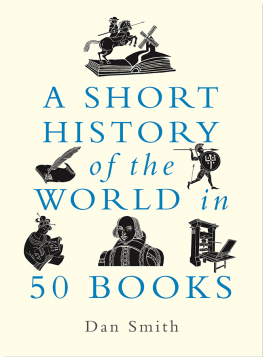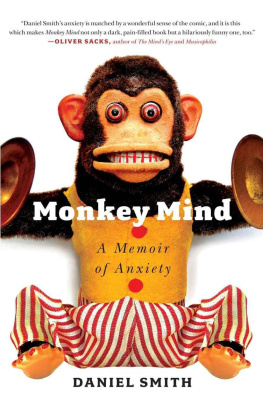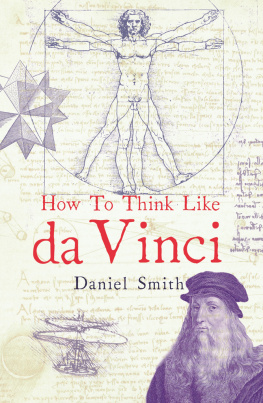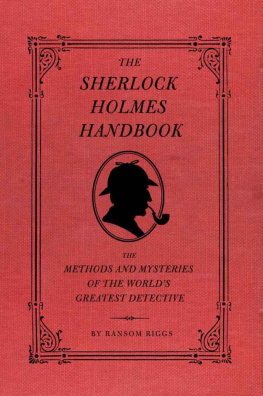For Rosie always the woman

First published in Great Britain in 2012 by
Michael OMara Books Limited
9 Lion Yard
Tremadoc Road
London SW4 7NQ
Copyright Michael OMara Books Limited 2012
All rights reserved. You may not copy, store, distribute, transmit, reproduce or otherwise make available this publication (or any part of it) in any form, or by any means (electronic, digital, optical, mechanical, photocopying, recording or otherwise), without the prior written permission of the publisher. Any person who does any unauthorised act in relation to this publication may be liable to criminal prosecution and civil claims for damages.
A CIP catalogue record for this book is available from the British Library.
ISBN: 978-1-84317-953-5 in print format
ISBN: 978-1-84317-971-9 in EPub format
ISBN: 978-1-84317-972-6 in Mobipocket format
Cover designed by www.lucystephens.co.uk
Illustrations by Aubrey Smith
Designed and typeset by Dave Crook
www.mombooks.com

Introduction

S omething strange has happened in the last few years. Sherlock Holmes that uptight, cold, sexless sleuth who inhabited the grimy streets of London in the latter part of the nineteenth century and early part of the twentieth has become cool.
Hollywood (in the form of Robert Downey Jnr) has got hold of Sherlock and made him tough, streetwise and even funny. Meanwhile, the BBC has given us Benedict Cumberbatch as a Holmes who oscillates between brooding moodiness one moment and manic energy the next. Cumberbatchs Holmes is the epitome of geek-sexiness.
For those of us who have loved the Holmes stories since we first read them as children, and grew up enchanted by Jeremy Bretts spellbindingly faithful depiction of him on the screen, this has all come as something of a surprise. For years, the worship of Sherlock Holmes has been something undertaken by a significant but ultimately small community, often regarded with a mixture of curiosity and condescension by an unsympathetic world at large.
How did Sherlock Holmes win his newly-elevated status? There are doubtless many reasons, but surely one of the chief attractions is that he is just so remarkably smart. In a world where we are fed a diet of eye-wateringly dull reality television and are forced to bear witness to the tiresome antics of identikit celebrities, Holmess fantastic feats of intellect and his complex and multi-layered psychology have never seemed more fascinating.
Holmes always knew he was a special case: No man lives or has ever lived who has brought the same amount of study and of natural talent to the detection of crime which I have done, he famously declared. Those who witnessed his exploits at first-hand called him a wizard, a sorcerer! and spoke of powers that are hardly human.
But Holmes himself was reluctant to share his secrets, proclaiming: You know a conjurer gets no credit when once he has explained his trick and if I show you too much of my method of working, you will come to the conclusion that I am a very ordinary individual after all. And even if he had shared, he had little faith in the ability of others to truly understand his methods: What do the public, the great unobservant public, who could hardly tell a weaver by his tooth or a compositor by his left thumb, care about the finer shades of analysis and deduction!
But, of course, the public back then did not have access to a book such as this. In the pages that follow we will make a light-hearted but comprehensive exploration of the psyche, mental gymnastics and investigative techniques of the worlds greatest consulting detective. Each section includes evidence from the original stories of Holmess mental processes, along with all sorts of information, advice and tips on how you can more closely resemble him. A liberal spattering of quizzes and exercises should serve to keep you on your toes as you go along.
Nor need you be planning a life as a crimefighter to benefit from these pages. A great many of the skills that Holmes encapsulated are transferrable; we can all benefit from improving our mental dexterity, growing our memory capacity and learning how to interpret body language.
Read this book carefully and absorb its lessons. As Holmes himself declared: A man should keep his little brain attic stocked with all the furniture that he is likely to use, and the rest he can put away in the lumber-room of his library, where he can get it if he wants it.

I:
Preparing the Mind

Understanding Sherlock
I play the game for the games own sake.
THE ADVENTURE OF THE BRUCE-PARTINGTON PLANS
Dear old Sherlock has rather acquired a reputation over the years as an anti-social, unfeeling machine with a fearsome streak of arrogance. Such a description is not entirely unjustified. Even faithful Watson in one of his more exasperated moments described him as a brain without a heart, as deficient in human sympathy as he was pre-eminent in intelligence. Then, in a more considered moment, Watson called him the best and wisest man whom I had ever known.
In truth, Holmes nestled somewhere uncomfortably between these two descriptions. The ordinary, everyday world largely bored him, which could make him seem distant, disinterested and even callous. This was an unfortunate side effect of his on-going quest for excitement, for the unusual, for the sort of problem that could only be solved by his particular type of mind.
I know, my dear Watson, said Holmes in The Red-Headed League, that you share my love of all that is bizarre and outside the conventions and humdrum routine of everyday life. It was this desire to rise above the mundane that so often drove him, sometimes onwards and upwards, sometimes into extreme danger and sometimes toward the terrible black dogs of his depression.
What cannot be in doubt is that the Great Detective took on all his work wholeheartedly, risking his own wellbeing in pursuit of his chief goal: defeating the worst criminal minds in the land. It was work that imperilled his life but which fulfilled a deep-seated need within him for intellectual challenge and heart-stopping adrenalin rushes. Take this short extract from The Boscombe Valley Mystery, which exquisitely captures Holmes as the thrill of the chase takes him over:
Sherlock Holmes was transformed when he was hot upon such a scent as this. Men who had only known the quiet thinker and logician of Baker Street would have failed to recognise him. His face flushed and darkened. His brows were drawn into two hard black lines, while his eyes shone out from beneath them with a steely glitter. His face was bent downward, his shoulders bowed, his lips compressed, and the veins stood out like whipcord in his long, sinewy neck. His nostrils seemed to dilate with a purely animal lust for the chase, and his mind was so absolutely concentrated upon the matter before him that a question or remark fell unheeded upon his ears, or, at the most, only provoked a quick, impatient snarl in reply.





















